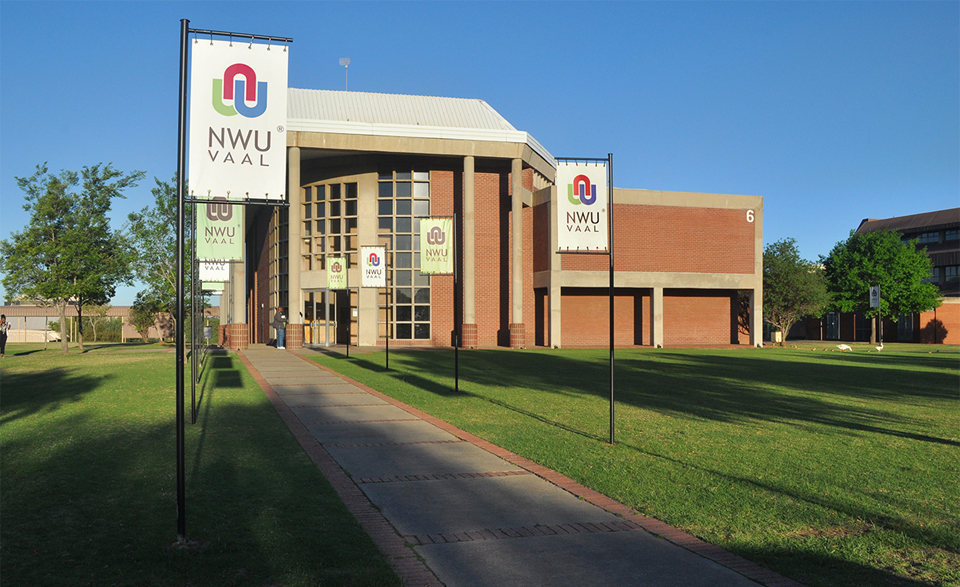A consortium of African universities and research institutions led by the Walter Sisulu University from South Africa, today announced the founding of the Sisulu Foundation for African and Pandemic Disease Response (“The Sisulu Foundation”).
The Foundation will establish a collaborative Pan-African platform for training, research and development in pandemics.
It aims to accelerate responses from within the African research community with regards to diseases and pandemics.
Foundation members include the Walter Sisulu University, South Africa (“WSU”); the North-West University, South Africa (“NWU”); the KAVI Institute for Clinical Research at the University in Nairobi, Kenya; L’Institut de Recherche en Santé, de Surveillance Épidémiologique et de Formations (IRESSEF) from Senegal; the University of Botswana, the South African Vaccination and Immunization Center (SAVIC) at Sefako Makgatho University, South Africa; The Mother and Child University Hospital – Jeanne EBORI, Gabon; the University of Bonn, Germany; the National Institute of Biochemistry in Slovenia, and several scientists in their personal capacities.
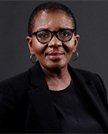 “We are extremely excited about this Foundation,” explains Prof Rushiella Songca, vice-chancellor and principal of the Walter Sisulu University. “It allows for African scientists to contribute to solving the health challenges of Africa collaboratively.
“We are extremely excited about this Foundation,” explains Prof Rushiella Songca, vice-chancellor and principal of the Walter Sisulu University. “It allows for African scientists to contribute to solving the health challenges of Africa collaboratively.
It is poignant when the World Health Organisation (WHO) and donor countries ask: But where are the African scientists and their solutions in times of pandemic?
This Covid-19 pandemic exposed huge gaps, but these are also huge opportunities.”
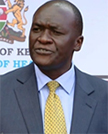 “The chairman of the executive board of the WHO, Dr Patrick Amoth, also expressed his excitement about the establishment of the Sisulu Foundation. “It is long overdue that African scientists participate in tackling the health challenges facing Africa. We are particularly impressed that the Sisulu Foundation managed to onboard some African heavyweights in vaccines and virology.
“The chairman of the executive board of the WHO, Dr Patrick Amoth, also expressed his excitement about the establishment of the Sisulu Foundation. “It is long overdue that African scientists participate in tackling the health challenges facing Africa. We are particularly impressed that the Sisulu Foundation managed to onboard some African heavyweights in vaccines and virology.
And we are delighted to see a collaborative, Pan-African effort. Well done to the founding partners! Let this be a call to action for African scientists, wherever they may find themselves and to our scientist friends from across the world. We are in this together!” Dr Amoth is also the director-general of Health in Kenya, giving him first-hand insight into the scourge of the Covid-19 pandemic on the African continent”.
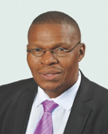 “Prof Dan Kgwadi, principal and vice-chancellor of the NWU, reinforced the commitment from his institution to the Sisulu Foundation: “The NWU is proud to be part of this consortium. We look forward to exchanging knowledge and expertise with other scientists on our continent and beyond.
“Prof Dan Kgwadi, principal and vice-chancellor of the NWU, reinforced the commitment from his institution to the Sisulu Foundation: “The NWU is proud to be part of this consortium. We look forward to exchanging knowledge and expertise with other scientists on our continent and beyond.
Collaborations and partnerships between our universities and particularly among scientists will lead us towards sustainable solutions to many of the health challenges faced by our communities. We will continue to invest in technical infrastructure and other support measures to ensure the success of the Foundation’s work.”
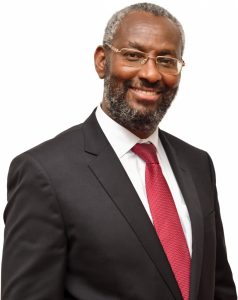 Prof Stephen Kiama Gitahi PhD, the vice-chancellor of the University of Nairobi, expressed the importance of complementary nodes in the research, development and production of vaccines and other medicines across the African continent. “We are delighted to be on board with this ambitious venture.
Prof Stephen Kiama Gitahi PhD, the vice-chancellor of the University of Nairobi, expressed the importance of complementary nodes in the research, development and production of vaccines and other medicines across the African continent. “We are delighted to be on board with this ambitious venture.
Our KAVI Institute will lead the East African node and will work closely with our partners in the rest of the continent and Europe to develop solutions to the current SARS-CoV-2 pandemic and use the lessons learnt to prepare our country and the region adequately to deal with future infectious disease threats. The solutions we seek through the Walter Sisulu Foundation should be appropriate for Africa and African-led for Africa.The University of Nairobi and the Kenyan people are proud to be part of this.”
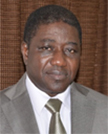 One of the great scoops for the Sisulu Foundation was the signing of IRESSEF, L’Institut de Recherche en Santé, de Surveillance Épidémiologique et de Formations, in Diamniadio, Senegal. Under the leadership of the world-renowned microbiologist Prof Souleymane Mboup, this West African Institute has been a guiding light of vaccine research in Africa over the past decades. Prof Mboup expressed, “We are very excited to join the Sisulu Foundation; it can be the beginning of great things for the African continent.
One of the great scoops for the Sisulu Foundation was the signing of IRESSEF, L’Institut de Recherche en Santé, de Surveillance Épidémiologique et de Formations, in Diamniadio, Senegal. Under the leadership of the world-renowned microbiologist Prof Souleymane Mboup, this West African Institute has been a guiding light of vaccine research in Africa over the past decades. Prof Mboup expressed, “We are very excited to join the Sisulu Foundation; it can be the beginning of great things for the African continent.
The current Covid pandemic has taught us a hard lesson: It is imperative for African nations to become self-sufficient, as a collective, when it comes to vaccines, medicines and pandemic control. If we don’t research possible solutions, we won’t develop them, and if we don’t develop them, we won’t manufacture them, and if we don’t manufacture them, we will again stand at the back of the queue when a global pandemic breaks out. The Sisulu Foundation is a catalyst for jointly addressing these aspects.”
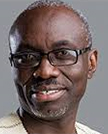 “Prof Walter Jaoko, director of the KAVI-Institute of Clinical Research at the University of Nairobi, reinforces his vice-chancellor’s message and stresses the importance of own manufacturing capacity: “The launch of this Pan-African platform for accelerated vaccine skills development is very welcome. The current challenges by Africa to access the Covid-19 vaccine is a wake-up call for the continent to begin manufacturing its own vaccines.
“Prof Walter Jaoko, director of the KAVI-Institute of Clinical Research at the University of Nairobi, reinforces his vice-chancellor’s message and stresses the importance of own manufacturing capacity: “The launch of this Pan-African platform for accelerated vaccine skills development is very welcome. The current challenges by Africa to access the Covid-19 vaccine is a wake-up call for the continent to begin manufacturing its own vaccines.
In addition, with the advancing of African countries from low-income to the lower-middle-income class means that these countries will now have to purchase childhood vaccines since they will no longer have free access to them through Global Alliance for Vaccines (GAVI). By Africa having its own vaccine manufacturing capability, such countries can be assured of access to these vaccines at affordable prices. I congratulate Walter Sisulu University for this very noble initiative.”
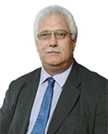 Prof Awie Kotze, executive dean of the NWU’s Faculty of Health Sciences, where they are in the final throws of motivating to the South African government for the establishment of a decentralised medical school model at the NWU, explained their thinking.
Prof Awie Kotze, executive dean of the NWU’s Faculty of Health Sciences, where they are in the final throws of motivating to the South African government for the establishment of a decentralised medical school model at the NWU, explained their thinking.
“It is important to create a decentralized pandemic response capacity on the continent. South Africans have to collaborate with the experts in other African countries and set up collaborative nodes of expertise. This is an ideal opportunity, and the NWU wants to be part of this.
The Sisulu Foundation also has two prominent inaugural members from the European Union. Their roles on the Scientific Advisory Board will be instrumental in knowledge transfer and linkages to Europe, where governments share a growing interest in African epidemics, in view of the movement of people (and hence diseases) between Africa and Europe.
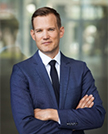 In this regard, Prof Hendrik Streeck from Bonn University, Germany, said, “The Covid-19 pandemic has demonstrated to us once more that nobody is safe until everyone is safe. I am honoured to join the Scientific Advisory board of the Sisulu Foundation to improve worldwide pandemic preparedness and equitable distribution of vaccines worldwide.”
In this regard, Prof Hendrik Streeck from Bonn University, Germany, said, “The Covid-19 pandemic has demonstrated to us once more that nobody is safe until everyone is safe. I am honoured to join the Scientific Advisory board of the Sisulu Foundation to improve worldwide pandemic preparedness and equitable distribution of vaccines worldwide.”
Prof Streeck is joined on the advisory board by fellow EU scientist prof Roman Jerala of the Slovenian National Institute of Chemistry.
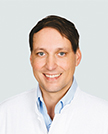 Prof Markus Depfenhart, a co-founder of the Sisulu Foundation, holds extraordinary professorships at WSU and NWU. He is currently leading a joint preclinical trial by these universities on a Covid-19 vaccine that he developed. “When the Covid-19 pandemic spread internationally, early in 2020, we predicted that African nations will be at the back of the queue for vaccines and that the leading vaccine platforms will likely not prove highly effective on Africans.
Prof Markus Depfenhart, a co-founder of the Sisulu Foundation, holds extraordinary professorships at WSU and NWU. He is currently leading a joint preclinical trial by these universities on a Covid-19 vaccine that he developed. “When the Covid-19 pandemic spread internationally, early in 2020, we predicted that African nations will be at the back of the queue for vaccines and that the leading vaccine platforms will likely not prove highly effective on Africans.
This called for a broader collaboration with African scientists, some of whom have developed vaccines before, who are experts in this field. And that is what the Sisulu Foundation has unlocked.”
Prof Songca reiterates: “We are humbled by the calibre of scientists coming on board, especially from Africa. Our young scientists should learn from them and join us in building a strong scientific capacity base for the African continent. There is no reason why we should not lead the development of solutions for Africa.”
The Sisulu Foundation plans to conduct a public launch ceremony later this year to allow the third waves of Covid first to pass in the various regions.
In the interim, the Board and Scientific Advisory Board will be evaluating several projects and initiatives by member institutions.
Read the original article here.
